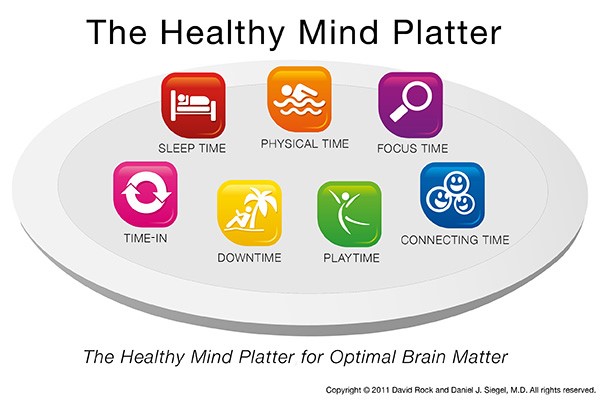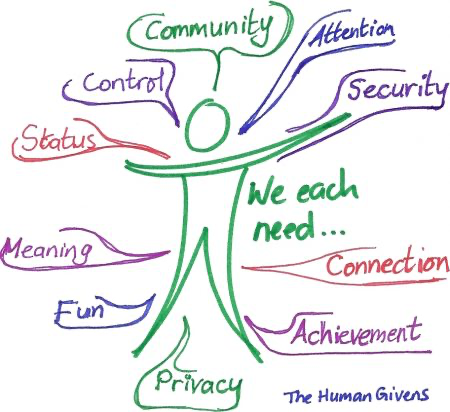Mental Wellbeing in Times of Pandemic
We are sailing in unchartered waters. We are trying to keep safe from an enemy that we don’t see while still wanting to maintain the life that we had up to a month ago.
Every single step that we are taking towards keeping ourselves and others safe, goes against the grain, against our basic human needs for safety and belonging, against our biological needs for connection. Physical distancing is not part of the makeup of our mammalian brain. We thrive on connection, our nervous system needs another nervous system to regulate, soothe and feel safe, and yet, this pandemic is pulling us in the opposite direction.
In these difficult times when trying to construct a sense of security, certainty and predictability, against all odds, we notice how our mental wellbeing is being challenged.
Stress, anxiety, worry, fear, onset of depression is rising not only in the adult population but in children also. It is not surprising as we are trying to achieve the impossible by keeping certain normality to a situation that is not normal. Our autonomic nervous system has been triggered and it is on alert stuck in survival mode.
However, there are some aspects of our lives that we can still control, there are some choices that we can make, limited, yes, but still choices. Mental Wellbeing starts with you!
The key cornerstone of mental wellbeing is self-care and for self-care to take place is paramount that we practice self-compassion. Self-Care acts without self-compassion can easily lead us to feelings of guilt for engaging in a pleasurable activity in times of turmoil and crisis.
Self-compassion offers us the breathing space to pause, check in with our bodies, acknowledge our difficulties and emotions( “I am having a hard time” or “This is so overwhelming” or “ I am feeling so stressed”) and take a step towards practising some loving kindness towards ourselves with an act of self-care.
And how do I start? you may ask. Simple – SCHEDULE it! Just like you schedule a team meeting, a conference call, an all hands call, an outing with the family, meals… Learn to schedule time for yourself to perform an activity just for your own pleasure, not the children, not the other half or work, just for yourself.
And what activities improve wellbeing? Well, Dr. Dan Siegel, clinical professor of psychiatry at the UCLA School of Medicine and executive director of the Mindsight Institute, talks about a Healthy Mind Platter to optimise wellbeing and it is in these turbulent times more than ever that I find myself using it to, not only promote mine and family’s wellbeing, help those affected by mental health issues.
A Healthy Mind Platter includes the following activities:
- Connecting Time
- Make sure you find some time to talk to a friend or a family member if only for a few minutes at least once a day. It is even more beneficial if you can see them on camera, research has proven that eye to eye contact can be memory-boosting, can heighten empathetic feelings, and have prosocial, and stimulating effects.
- Down time
- When we are non-focused, without any specific goal, and let our mind wander or simply relax, we help the brain recharge. Take 10 minutes twice a day to just sit and have a cup of coffee in peace and quiet. Go to the garden if it has not been taken over by the children or stay in your home office but make sure that you don’t sit at your desk or look into emails or do any work. Have a book handy, a kindle or just look out the window.
- Play time
- Just like that, play! Find something enjoyable to do. Whether you schedule one hour of video gaming, iPad or mobile phone games, knit, potter about, cook for pleasure, make fimo figurines, make a puzzle or play cards. Just play, be spontaneous or creative. Enjoy novel experiences.
- Physical Time
- It is what is written in the tin. Get outdoors, go for a walk, a cycle, a jog. Spend as much time in nature as you possibly can. Research has shown that being in nature reduces stress, improves cognitive function, enhances mood and creativity and can increase health and wellbeing, as well as productivity.
- Time in
- Find some time in your day to pause, check in with your body. Is there any tension accumulated somewhere? How am I feeling? Take a deep breath in and feel your stomach expanding, feel the cold air going in through your nostrils. Notice the small pauses in the breathing, those pauses in between inhaling and exhaling. Use some form of mindfulness app or guided meditation apps. Find time to quietly reflect internally.

So, go ahead and find some self-care practices that fulfil your soul. Look out for those activities that meet your basic emotional needs of connection, fun times, meaning, a sense of control and achievement, a sense of security.

Next, choose 2-3 activities that you can complete in a few minutes two or three times a day and 2-3 activities that you can do once a day over a week period.
Now, Schedule your self-care strategies in your week and make them a priority. Remember, routine leads to predictability, which leads to resilience. So next time you notice stress is getting too high, worrying thoughts, creeping fears, you might decide to take a break, have down time or some play time, do some yoga or go for a run so you can get back to baseline.
So next time you notice stress is getting too high, worrying thoughts, creeping fears, you might decide to take a break, have down time or some play time, do some yoga or go for a run so you can get back to baseline.
Author: Olga Zilberberg CBT & NLP Practitioner, Mental Health Program Tutor
You can reach Olga via her website www.olgaz.co.uk




